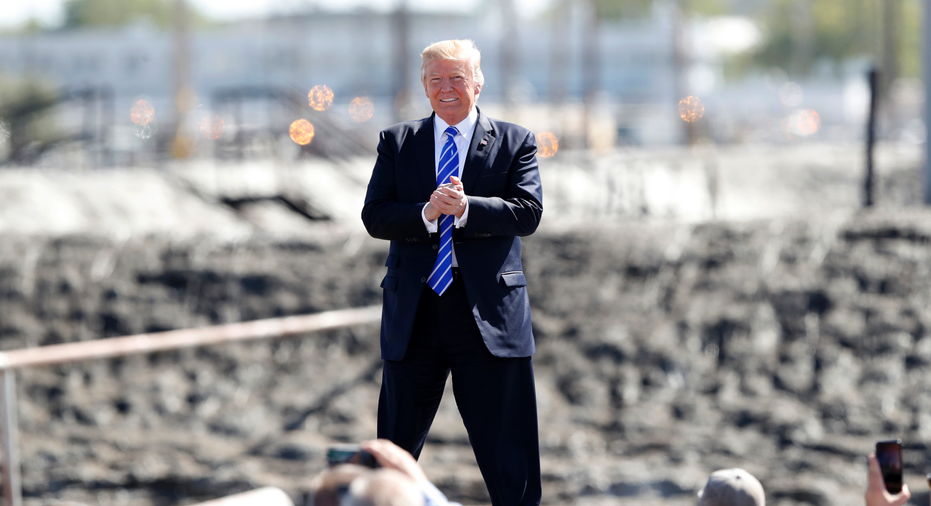AP FACT CHECK: Trump on taxes

WASHINGTON – President Donald Trump headed to North Dakota to discuss his tax overhaul plans Wednesday, but not all of his speech lined up with the facts about the tax code and the state of the U.S. economy.
Trump says he intends to cut taxes by the most since 1981, but the White House still hasn't released a plan with numbers to support the claim. Nor do most economists say that Trump's presence at the White House has suddenly caused growth to accelerate as he suggested in the speech.
Here is a look at Trump's claims and the facts:
TRUMP: "This is a major, major tax cut. The biggest since Ronald Reagan."
THE FACTS: Trump has long bragged about the size of his tax cut, but he hasn't proposed a detailed plan to back up his claim. So it's hard to say how much tax relief he would offer.
But matching President Reagan's 1981 tax cut could cause the deficit to jump substantially.
The 1981 tax cut trimmed government revenues by an average of 2.89 percent over four years, according to a Treasury Department analysis. A similarly sized tax cut in 2018 would be equivalent to roughly $580 billion a year, a figure that would cause the national debt to balloon to levels that many economists say could ultimately hurt growth.
___
TRUMP: "Last quarter, we hit 3 percent GDP. And I'll tell you what, a lot of that had to do with the cutting of the regulation and I think a lot of it had to do with optimism."
THE FACTS: Most economists say that any president — including Trump — is unlikely to suddenly turnaround the world's largest economy. The impact is often felt at a more gradual pace than six months.
While a given president is in office, faster growth is often determined by oil prices, stronger growth overseas and higher levels of productivity — all forces outside the White House's domain, according to research by Princeton University economists Alan Blinder and Mark Watson.
Both the powers of the president and the broader government on the economy are "quite limited," Blinder said.
"Think of it as trying to steer a fully-loaded oil tanker," he said. "Policies do have effects, but they can't change the economy's course on a dime."
The U.S. economy did expand at a 3 percent annualized pace during the April-June quarter. But that increase came after a sluggish annual growth rate of 1.2 percent during the first three months of 2017. This means the economy expanded at 2.1 percent during the first half of the year, roughly the same pace as it has during the recovery from the Great Recession.
___
TRUMP: "The taxes are crazy. The highest taxed nation in the world."
THE FACTS: Trump has complained before about tax burdens in the United States. But the overall U.S. tax burden is actually one of the lowest among the 32 developed and large emerging-market economies tracked by the Organization for Economic Cooperation and Development.
Taxes made up 26.4 percent of the total U.S. economy in 2015, according to the OECD. That's far below Denmark's tax burden of 46.6 percent, Britain's 32.5 percent or Germany's 36.9 percent. Just four OECD countries had a lower tax bite than the U.S.: South Korea, Ireland, Chile and Mexico.
Asked about a tweet Wednesday on the matter, White House counselor Kellyanne Conway said: "The president is probably referring to the fact that in the developed world we have the highest corporate tax rate."
The United States does have one of the highest corporate tax rates in the world, but, due to tax breaks, many companies don't pay the full rate.
___
Find AP Fact Checks at http://apne.ws/2kbx8bd



















